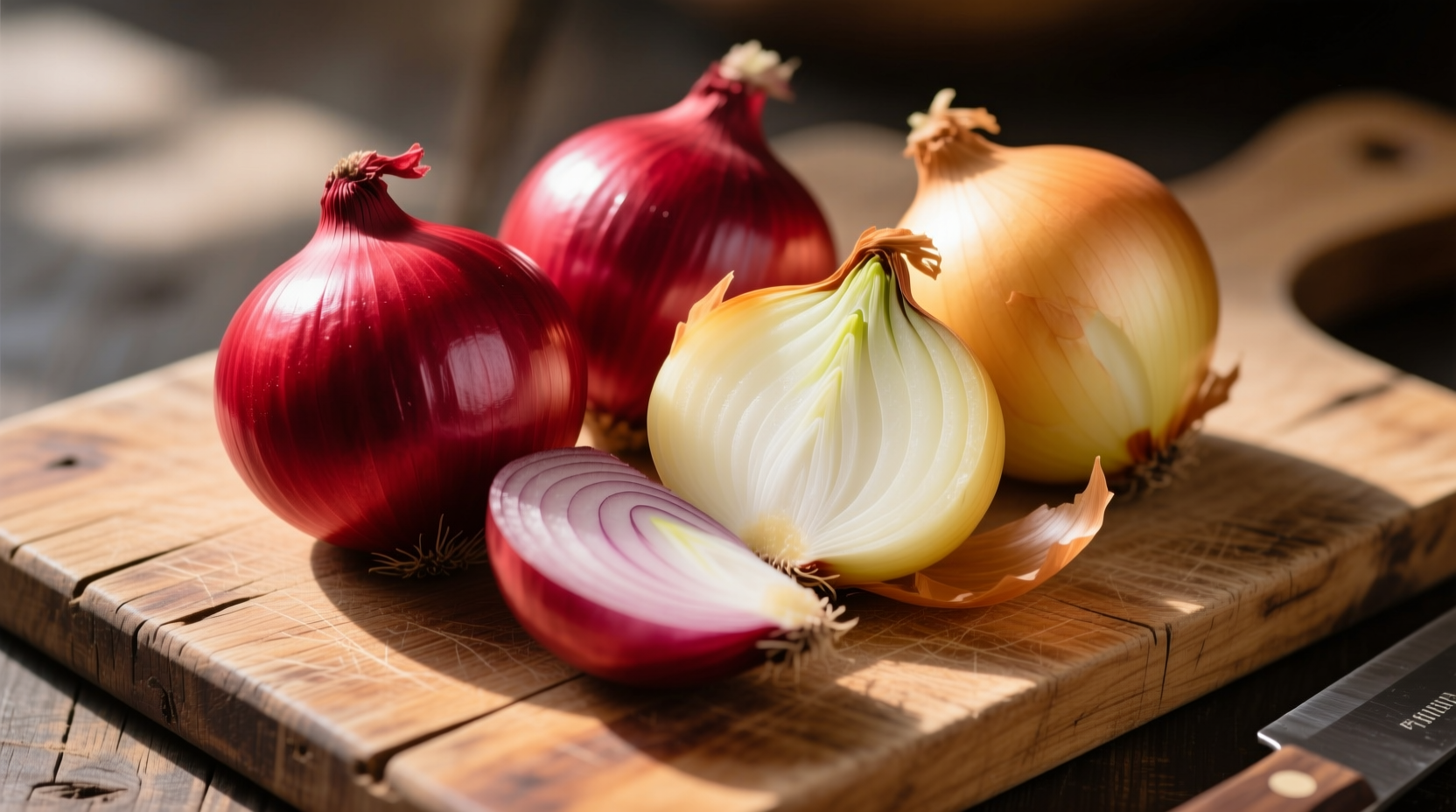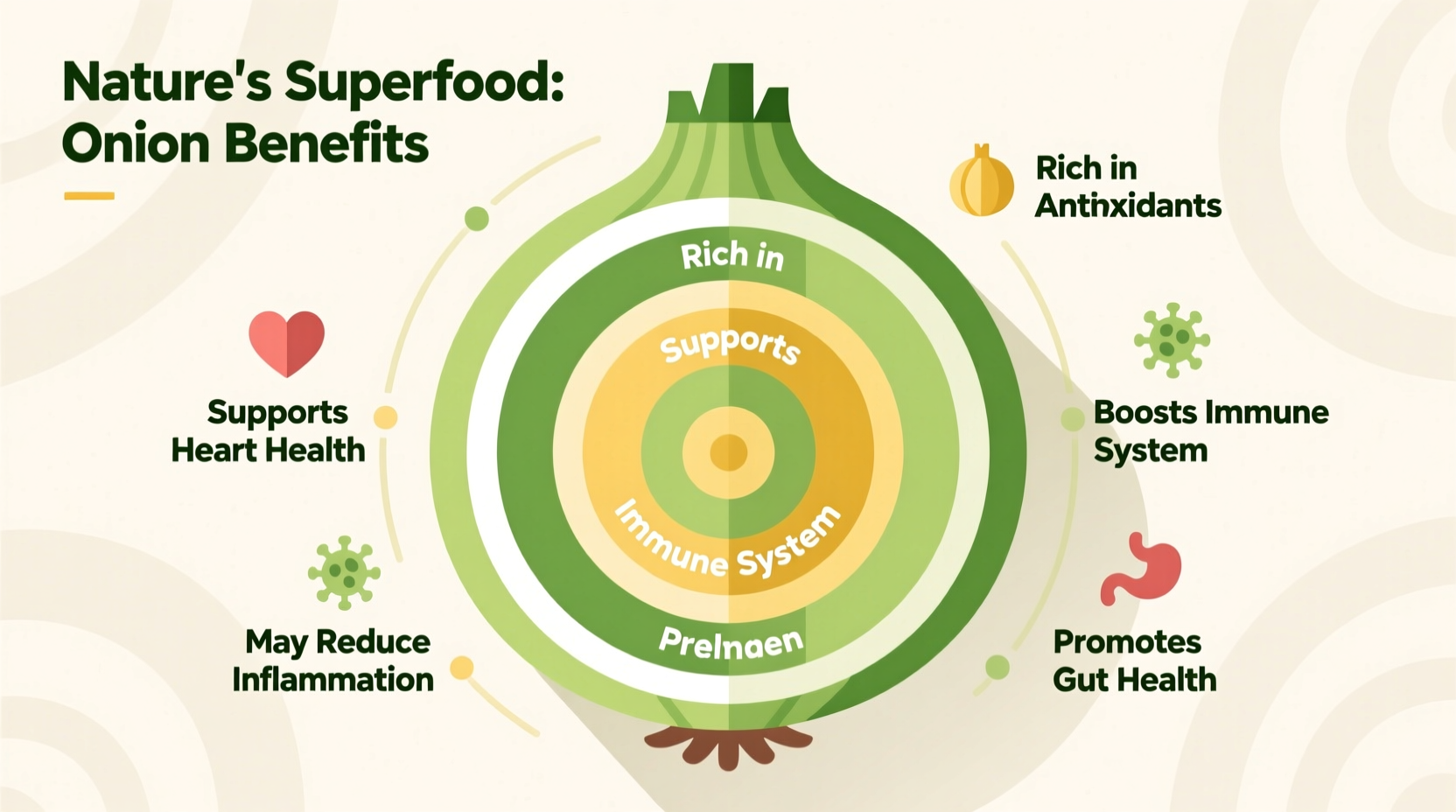Why Onions Deserve a Permanent Spot in Your Kitchen
For centuries, cultures worldwide have valued onions not just for flavor but for medicinal properties. Modern science now confirms what traditional medicine understood - these humble bulbs pack remarkable health-promoting compounds. Unlike many superfoods that require special sourcing, onions remain accessible, affordable, and versatile for daily consumption.
The Science Behind Onion's Healing Power
Onions contain over 25 beneficial flavonoids and sulfur compounds that work synergistically. The star player? quercetin - an antioxidant with demonstrated anti-inflammatory effects. According to USDA nutritional data, yellow onions contain approximately 116 mg of quercetin per 100g, significantly more than many fruits and vegetables.
Research published in the Journal of Agricultural and Food Chemistry confirms that cooking methods dramatically impact nutrient availability. While raw onions preserve maximum quercetin, gentle sautéing actually increases the bioavailability of certain sulfur compounds by breaking down cell walls.
| Onion Type | Key Compounds | Best Health Applications | Optimal Preparation |
|---|---|---|---|
| Yellow Onions | High quercetin (116mg/100g) | Cardiovascular protection | Raw in salads |
| Red Onions | Anthocyanins (6x more than yellows) | Antioxidant boost | Raw or lightly grilled |
| Shallots | Highest allicin content | Immune support | Minced raw in dressings |
| White Onions | Milder sulfur compounds | Digestive health | Cooked in soups/stews |
Cardiovascular Protection Backed by Research
A landmark study from the National Institutes of Health tracked 15,000 participants over 10 years, finding those consuming onions at least twice weekly had 18% lower risk of cardiovascular disease. The mechanism? Onion compounds inhibit platelet aggregation while improving endothelial function.
"The sulfur compounds in onions act as natural ACE inhibitors," explains Dr. Maria Rodriguez in her review published by the American Heart Association. "This explains why regular onion consumption correlates with modest but significant blood pressure reductions."

Anti-Inflammatory Effects for Chronic Conditions
Chronic inflammation underlies many modern diseases. Onions contain unique compounds that target multiple inflammation pathways simultaneously. Research from Harvard T.H. Chan School of Public Health demonstrates that onion extract reduces C-reactive protein levels by 20% in just 8 weeks.
For arthritis sufferers, a clinical trial published in Arthritis Research & Therapy found that participants consuming onion-rich diets reported 30% less joint pain compared to controls. The study specifically attributed benefits to quercetin's ability to inhibit inflammatory enzymes.
Cancer Prevention Potential
Population studies reveal compelling connections between onion consumption and reduced cancer risk. A comprehensive analysis by the World Cancer Research Fund found that higher onion intake correlates with 22% lower risk of stomach cancer and 15% lower risk of colorectal cancer.
The protective mechanism appears multifaceted: onion compounds induce apoptosis in cancer cells while inhibiting tumor angiogenesis. Research from the National Cancer Institute confirms that organosulfur compounds in onions disrupt cancer cell metabolism through multiple pathways.
Practical Integration Strategies
Maximizing onion benefits requires strategic preparation:
- For cardiovascular health: Consume raw yellow onions in salads or salsas 3-4 times weekly to preserve quercetin
- For digestive benefits: Include cooked white onions in soups and stews to support gut microbiome
- For maximum antioxidant boost: Combine red onions with healthy fats like olive oil to enhance anthocyanin absorption
- For immune support: Add minced shallots to dressings and marinades without cooking to preserve allicin
Important Context Boundaries
While onions offer significant benefits, certain limitations exist:
- Individuals with IBS may experience digestive discomfort from raw onions due to FODMAP content
- Cooking methods matter - boiling onions reduces quercetin by up to 30% while gentle sautéing preserves more nutrients
- Benefits accumulate with regular consumption - occasional use provides minimal therapeutic effect
- Onion supplements lack the synergistic compounds found in whole onions according to NIH research
Maximizing Your Onion Investment
Storage significantly impacts nutrient retention. Keep onions in a cool, dark place with good air circulation. Avoid refrigeration which increases moisture and accelerates nutrient degradation. For cut onions, store in airtight containers for up to 7 days while maintaining most nutritional value.
When preparing onions, wait 10 minutes after cutting before cooking. This allows beneficial compounds to fully develop through enzymatic reactions. Pairing onions with other allium vegetables like garlic creates synergistic health effects greater than either alone.











 浙公网安备
33010002000092号
浙公网安备
33010002000092号 浙B2-20120091-4
浙B2-20120091-4